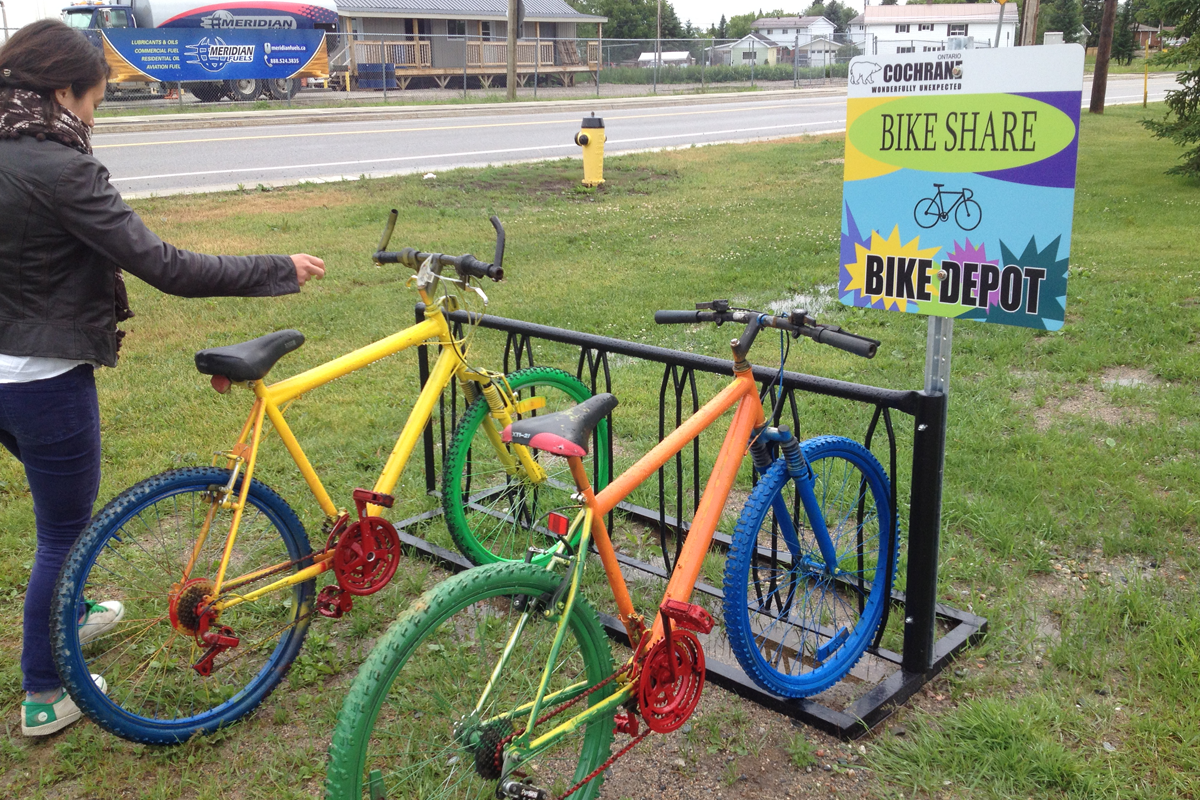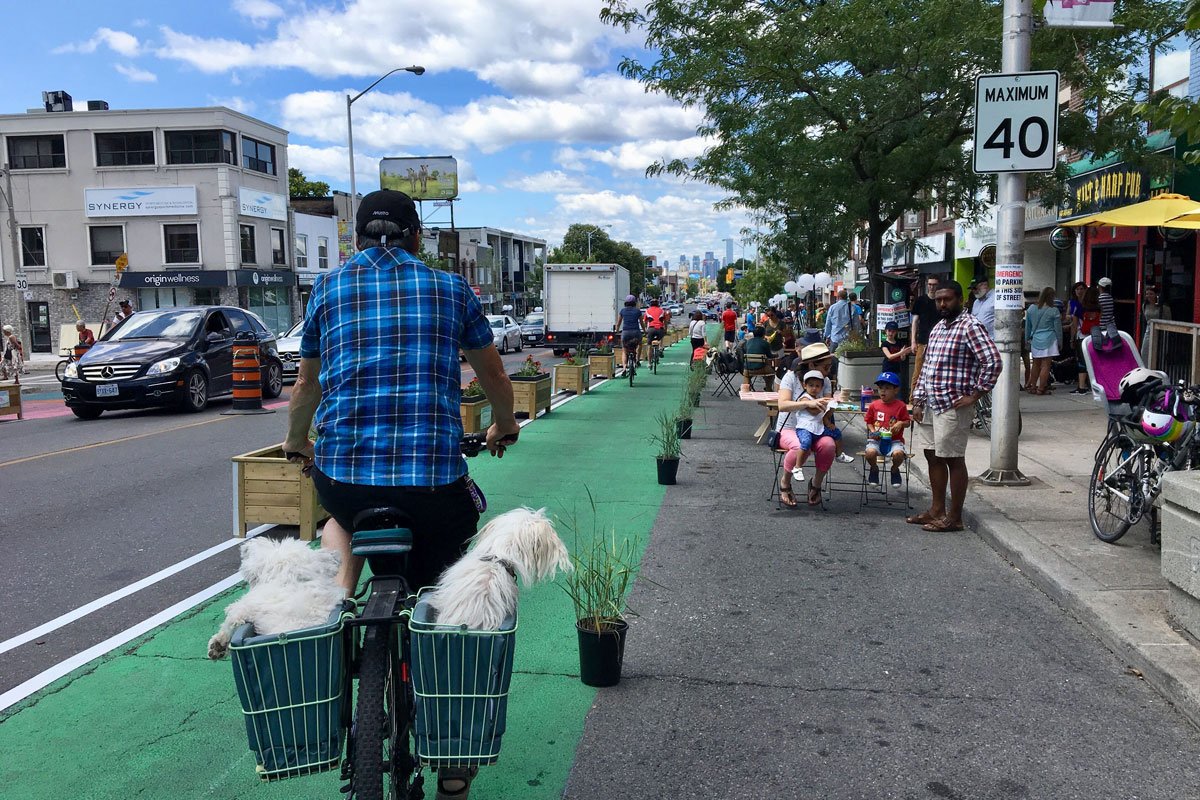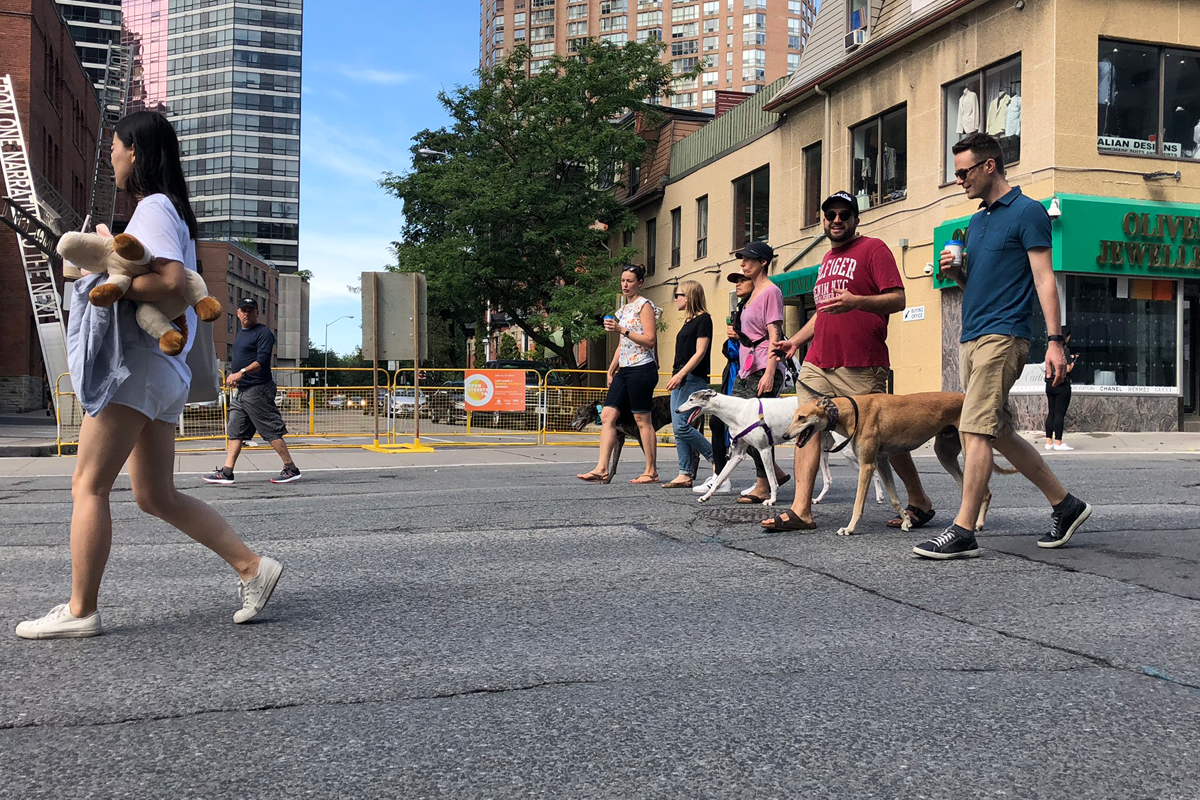
26 Feb Mobility 101: Simple Ways to Improve Getting Around During a Pandemic
8 80 Cities is excited to be working alongside Community Foundations of Canada and the Canadian Urban Institute with the support of the Government of Canada as part of the Healthy Communities Initiative. The Healthy Communities Initiative is a $31 million investment from the Government of Canada to support communities as they create and adapt public spaces to respond to the new realities of COVID-19. The deadline for applications for the first round of funding is March 9, 2021.
To help individuals and organizations in their application process, our team recently delivered a public webinar called “Mobility 101: Simple Ways to Improve Getting Around During a Pandemic” where we explored 15 inspirational mobility initiatives from across North America that focused on making it easier, safer, and more accessible for people to walk, bike, use mobility devices, and take transit, all the while maintaining a safe physical distance. If you missed the webinar, you can tune into it here.
While many of the examples we explored were projects that took place prior to COVID-19, they nonetheless represent approaches that can be used in response to COVID-19 to help people, especially communities that have been disproportionately affected by the pandemic, get around more safely.
Below you can find links to all the case studies that we explored in the webinar. Whether or not you intend on applying for funding through the Healthy Communities Initiative, we hope that these examples are able to inspire you with new ways of improving mobility options in your own community.
Temporary Street Transformations

8 80 Streets Danforth, Toronto, ON: 8 80 Cities and Better Block team up to give Danforth Avenue, a busy commercial corridor, a pop-up street makeover. Using temporary paint and simple materials, and over 100 volunteers, we built expanded pedestrian space, protected bike lanes, parklets, street furniture, and community programming for all ages.
Expanded Sidewalks, Vancouver, BC & Winnipeg Beach, MB:
Slow Streets: Essential Places, Oakland, CA: Oakland’s initial rollout of Slow Streets failed to address the needs of communities most affected by COVID-19. By incorporating community feedback, they revised their program to focus on improving the safety of pedestrian and cycling connections to essential places such as grocery stores, COVID-19 testing locations, and food distribution sites.
School Streets: Toronto, ON & cities everywhere: School Streets are programs that temporarily close a stretch of street in front of a school to increase the overall safety and experience of the student pick up and drop off area.
Paint the Pavement School Zone, Paradise, NL: This initiative enlists and artist to work with students to paint the streets and intersections surrounding schools to slow down traffic and improve safety for children and families walking to school.
Homework Hubs, New York City, NY: Created and hosted by Street Lab, Homework Hubs close down small sections of streets to provide open-air meeting places for students to access wifi, meet up with their classmates, and find a book to read all the while remaining safe, physically distanced, and outdoors.

Open Streets Programs, cities everywhere: Open Streets are programs that temporarily open streets to people and close them to cars. Streets become paved parks or free outdoor gyms, allowing people to stay healthy while physically distanced.
Improving Access to Transit
Walk & Ride Audits, San Francisco, CA: Walk & Ride audits invite residents to evaluate the experience of accessing certain bus routes and provide practical feedback to transit authorities for improving the public transit experience. SF Transit Riders primarily organize these audits in racialized and low-income communities and are guided by the understanding that “transit trips are not just stop to stop, but door to door”.
Go Ave 26, Los Angeles, CA: Based on feedback from an inclusive community engagement process, Go Ave 26 developed and installed a series of design interventions that make getting to and from public transit hubs along Avenue 26 easier, safer, and more inviting.
Mobility Services and Programs
Volunteer Snow Shoveling Programs, cities everywhere: Volunteers are paired with individuals who are unable to clear the sidewalks in front of their homes. This program helps keep community sidewalks safe and accessible during the winter.
Winterpeg Initiative, Winnipeg, MB: The Winnipeg Trails Association has recently committed to creating 30 new skiing and walking trails in neighbourhoods across the city. People can access information about the status of the trails on the Winterpeg website, which aims to create, map out, and promote winter activities like skiing, skating, biking, and walking.
Parc Actif Winter Gear Library, Montreal, QC: Four Montreal libraries are offering anyone with a library card the opportunity to borrow winter gear such as sleds, snowshoes and walking poles. This free service reduces financial barriers to participating in winter recreation and getting around the city in winter.
Bike Match, New York City, NY: Bike Match was created as a direct response to the increase in demand for bicycles among essential workers as a safer way to get around during the pandemic. By filling out an online form, the program matches essential workers in need of a bike with people who are willing to donate a bike.

Free Bike Share, Cochrane, ON: Leaders in Cochran, a town of 5,000 people in Northern Ontario, created their own free bike share system by collecting donated bikes, fixing them up, painting them in unique colours.
Bike Host, Toronto, ON and other cities: Bike Host is a program run by CultureLink, a settlement agency, that pairs newcomers with local mentors who then arrange meet-up times to explore the city together on a bike. Participants develop new friendships, knowledge about places to go in the city, and the confidence to integrate biking into their daily lives.


